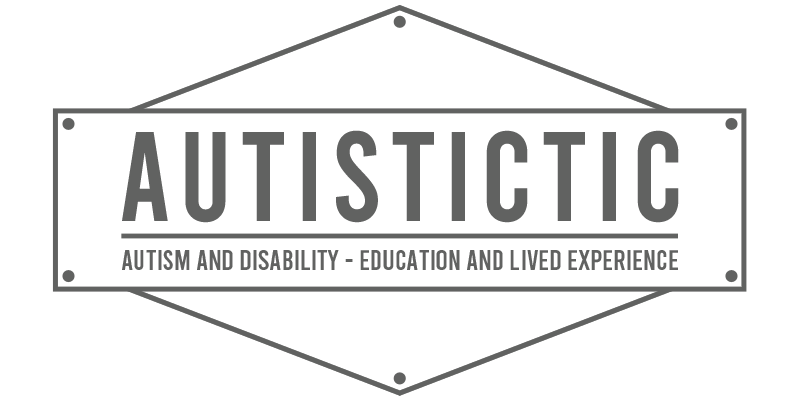
ALEXITHYMIA – WHEN YOU DON’T KNOW WHAT YOU FEEL

WHAT ALEXITHYMIA IS
“How does that make you feel?”
If you don’t have alexithymia you would likely answer with an adjective describing your current emotion. Guilty. Sentimental. Anxious. Helpless. Eager. Caring. Perplexed. There are so many. But somehow you would know exactly which one is the right one. Because you would know which emotion you are feeling.
If you do have alexithymia you would likely answer by describing your physical state instead. Tired. My muscles are tense. Nauseated. My heart is beating so fast. I’m sweating. Or you would struggle to answer at all because you would know an emotional adjective is expected but you wouldn’t know which one to give. Because you wouldn’t know which emotion you are feeling.
That’s alexithymia.
The term comes from the Greek words “a” meaning “not”, “lexis” meaning “words”, and “thymos” meaning “heart” or “emotions” so it means “No words for emotions”.
People with alexithymia have difficulty identifying and describing their emotions. They often also have similar difficulties identifying the emotions of other people which can lead to problems with empathy.
It’s important to note that while I am both autistic and alexithymic and alexithymia is common amongst autistic people both conditions don’t necessarily have to co-occur. Not all autistic people have alexithymia. Not all alexithymics are autistic.
It’s also important to note that alexithymia can be a temporary (for example through PTSD) as well as a permanent condition.
I hope you noticed that nowhere in this description is there any mention of people with alexithymia not having emotions. That’s because they do. They just often don’t know which emotions they experience.
WHAT ALEXITHYMIA FEELS LIKE
Most of the time I’m in what I call my “neutral state”. This means I currently don’t experience any huge, clear emotions like anger or fear and the little emotions are too small, too diffuse for me to identify so it just feels neutral.
Even for emotions, I can identify and describe this usually only comes after the fact. After careful analysis of the situation and of how my body felt I sometimes can understand “Oh that’s what I felt then!”.
Feeling words mean little to me. Some I learned and try to incorporate into my vocabulary. However, I was told that certain things indicate certain emotions from other people. I don’t know most of it myself.
I mostly describe how I feel with non-emotion adjectives. Like tired, hungry, nauseated, in pain, dizzy, exhausted – anything related to how my body feels physically. Physical sensation is my way to know how I feel. I simply can‘t grasp much else let alone explain it to others.
WHY ALEXITHYMIA CAN BE A PROBLEM
I feel everything more intensely because of my autism. So I get a lot of overloads from emotions I don’t understand, as well as from physical reactions of my body.
Often emotions get stuck in my system and bother me for a very long time without me knowing what’s going on or what to do about it. Sometimes I feel physically horrible for weeks, thinking I got some kind of physical issue until I eventually realize that it‘s actually an emotional thing bothering me.
Alexithymia limits my ability to work through negative emotions and letting them go. It also limits my ability to experience positive emotions and holding on to them. I am fairly certain this makes all things involving emotions like having healthy self-esteem, building relationships, or recovering from trauma very difficult.
Emotions for me are often overloading chaos. When I get exposed to emotionally negatively charged things I suffer. The consequences can be severe and very harmful to me. Depending on how I am doing I can or cannot engage with certain things.
Being able to explain what we feel to other people is also a huge part of building relationships. Not being able to identify and describe my own emotions is one thing – not being able to do the same with other people’s emotions causes difficulty with empathy which in turn makes relationships difficult.
And finally, alexithymia puts me at a huge risk of coercion, abuse, and gaslighting. If I don’t know what I am feeling I am at great risk of being convinced by other people that I am feeling things I’m not actually feeling. So I always have to be mindful of this.
HOW TO ACCOMMODATE ALEXITHYMIA
To avoid overloads and meltdowns triggered by too many emotions that I can’t identify and work through I might do things like…
…not watching the news.
…not watching harmful videos on youtube.
…not watching certain movies.
…not engaging with harmful views I come across.
…not reading articles with emotionally charged topics.
…not checking social media.
Sometimes I use emotion words even though I don’t actually know if I am feeling that emotion because it’s not always possible or safe for me to explain that I have alexithymia and what it is.
Over the years I have learned that certain physical sensations of my body indicate that I am feeling certain emotions. And I have learned that certain situations would logically cause certain emotional reactions. So sometimes I use the emotion words I believe to be the most correct.
The biggest accommodation by other people would be to simply not ask me to explain how I feel. Especially after I explained that I can’t.
If I say “Stop.” – stop. Period.
I say “Stop” when I am on the verge of a meltdown. Due to alexithymia I often can’t sense this early enough. I can only sense it when the emotions have already become so big and overwhelming that even I can identify the urgency because I am getting a physical reaction.
Alexithymia is nobody’s fault. It also doesn’t make anyone a bad person. It makes life a lot harder, so make it a little easier by being kind and accepting.

Oh. Reading this describes my experience exactly. I’m in neutral 99% of the time, unless things hit a high, in which case emotion is very intense and can only exist for about 30 minutes, good or bad, before it causes a meltdown from overstim. It’s good I have a word for it now.
Great article, I have been speaking about this for over 20 years now, though I say that almost everyone in out culture suffers from a form of alexithymia. It shows up in the article, where “irritated”, “anxious” and “annoyed” are considered to be non-alexithymic responses to the question how are you. Those are so vague as to only convey the basic notion of I am upset. But there are so many different ways to be upset. You you feeling betrayed, dismissed, inadequate, helpless, used, abused, etc. Even the fact that our culture does not distinguish between feelings and emotions. or that we have over 5 major theories of emotions, most of which do not agree with each other, says how alexithymic we are.
So alexithymia is not something unique to people with autism, its sometime everyone suffers from until they explicitly learn to feel and express emotions well enough to actually resolve them and not be haunted by them forever.
We have online courses and resources to help people learn about healthy emotional processing. So glad that people are waking up to this.
“It shows up in the article, where “irritated”, “anxious” and “annoyed” are considered to be non-alexithymic responses to the question how are you.”
The reason I mentioned these emotions instead of more nuanced ones isn’t that everyone is alexithymic.
It’s that I (the writer of the article) am alexithymic and those are some of the few emotion words I know.
I absolutely disagree with the notion that everyone is alexithymic.
(the fact that not only autistic people can be alexithymic is mentioned in the article)
To make this clearer I am going to edit the article to include more nuanced emotional responses for non-alexithymic people.